- 0086-571-85302990
- sales@greenskybio.com
Konjac powder: What are its benefits and how to take it?
2024-11-12

1. Introduction to Konjac Flour
Konjac flour is a unique and versatile food ingredient that has been gaining popularity in recent years. It is derived from the konjac plant, which is native to Asia. The plant has a large, starchy corm that is processed to obtain the flour. Konjac flour is known for its distinct properties, such as its ability to form a gel - like texture when mixed with water. This makes it useful in a variety of culinary applications as well as in the realm of health and wellness.
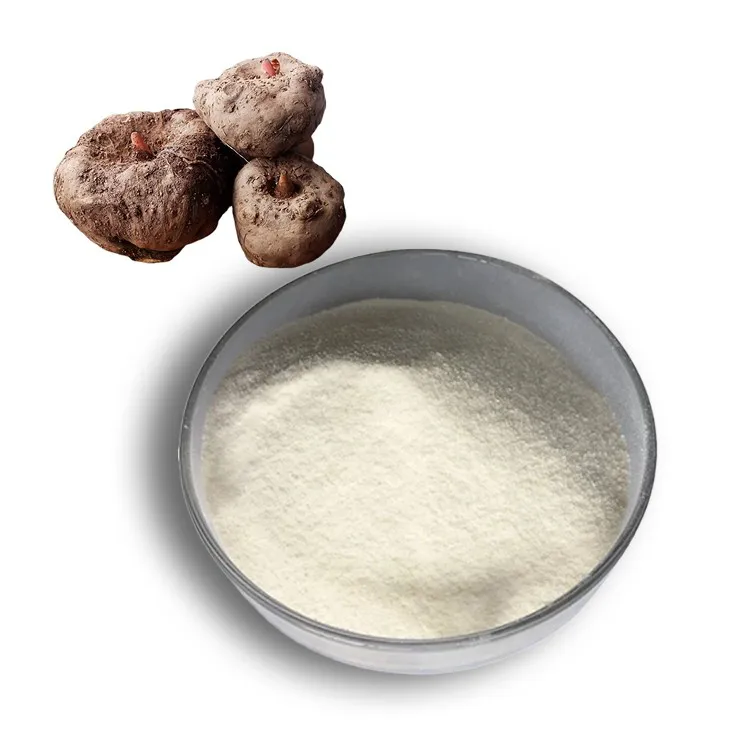
2. Health Benefits of Konjac Flour
2.1 Aiding Digestion
One of the significant benefits of konjac flour is its positive impact on digestion. Konjac contains a type of soluble fiber called glucomannan. Glucomannan has the ability to absorb water and swell in the digestive tract. This helps to add bulk to the stool, preventing constipation and promoting regular bowel movements. Additionally, it can also help to slow down the absorption of carbohydrates, which can contribute to more stable blood sugar levels after a meal.
2.2 Promoting Satiety
Konjac flour is an excellent choice for those looking to manage their weight or control their appetite. Due to its high fiber content, it creates a feeling of fullness in the stomach. When consumed, glucomannan expands in the stomach, sending signals to the brain that you are satisfied and reducing the urge to overeat. This can be particularly useful for individuals following a diet plan or trying to cut down on calorie intake.
2.3 Lowering Cholesterol Levels
Studies have suggested that konjac flour may have a positive effect on cholesterol levels. The soluble fiber in konjac binds to cholesterol in the digestive system and helps to excrete it from the body. By reducing the absorption of cholesterol, it can contribute to lower levels of LDL (low - density lipoprotein), also known as "bad" cholesterol, in the blood. This, in turn, may reduce the risk of heart disease and other cardiovascular problems.
2.4 Regulating Blood Sugar
As mentioned earlier, konjac flour can play a role in regulating blood sugar. Glucomannan slows down the digestion and absorption of carbohydrates, which helps to prevent rapid spikes in blood glucose levels. This is especially beneficial for people with diabetes or those at risk of developing diabetes. By maintaining more stable blood sugar levels, it can also reduce the associated symptoms such as fatigue, thirst, and frequent urination.
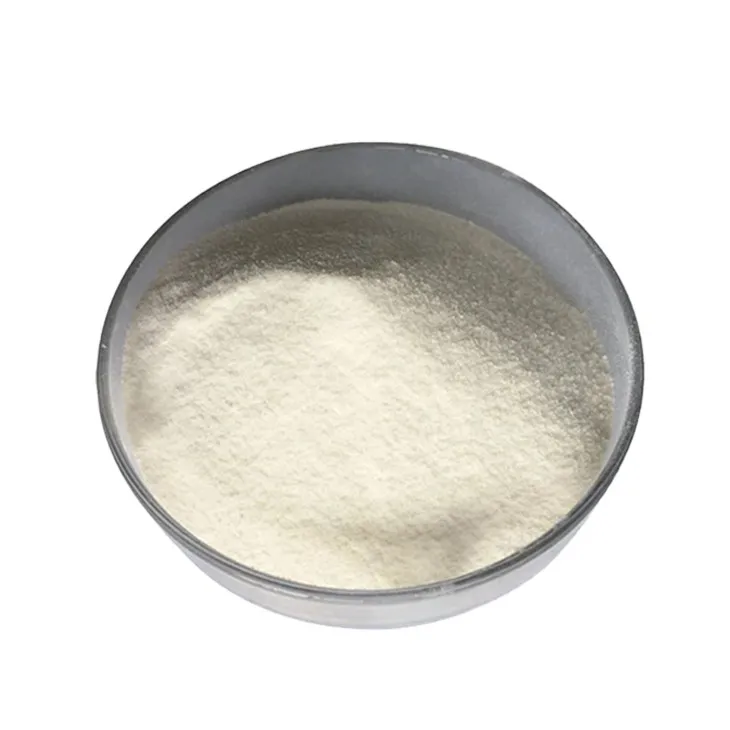
3. Ways to Incorporate Konjac Flour into Your Diet
3.1 Konjac Noodles
- Konjac noodles are one of the most popular ways to consume konjac flour. These noodles are very low in calories and carbohydrates, making them a great alternative to traditional pasta for those on a low - carb or weight - loss diet.
- They can be prepared in a variety of ways. For example, you can simply rinse them with water to remove any odors and then add your favorite sauce, vegetables, and protein sources such as chicken or tofu. Stir - frying or boiling the konjac noodles with other ingredients can create a delicious and healthy meal.
3.2 Konjac Jelly
- Konjac jelly is another delightful form of konjac - based food. It is often flavored with fruits or other natural flavors.
- To make konjac jelly at home, you can mix konjac flour with water and a sweetener of your choice (such as stevia for a low - calorie option). Add some fruit juice or pieces of fresh fruit for added flavor and nutrition. Then, heat the mixture until it thickens and pour it into molds to set. Konjac jelly can be a refreshing and guilt - free snack.
3.3 Baking with Konjac Flour
- Konjac flour can also be used in baking, although it has different properties compared to traditional flours like wheat flour. It can be combined with other gluten - free flours such as almond flour or coconut flour to create baked goods.
- When using konjac flour in baking, it's important to note that it may absorb more liquid than regular flours. So, you may need to adjust the amount of liquid in your recipe accordingly. Some popular baked items that can be made with konjac flour include muffins, pancakes, and bread.
3.4 Konjac - Based Drinks
- There are also konjac - based drinks available in the market. These drinks usually contain konjac powder dissolved in water along with other added flavors and nutrients.
- If you prefer to make your own konjac - based drink at home, you can mix a small amount of konjac flour with water and add some natural flavorings like lemon juice or mint leaves. However, make sure to stir well to avoid lumps as konjac flour can be a bit tricky to dissolve completely.
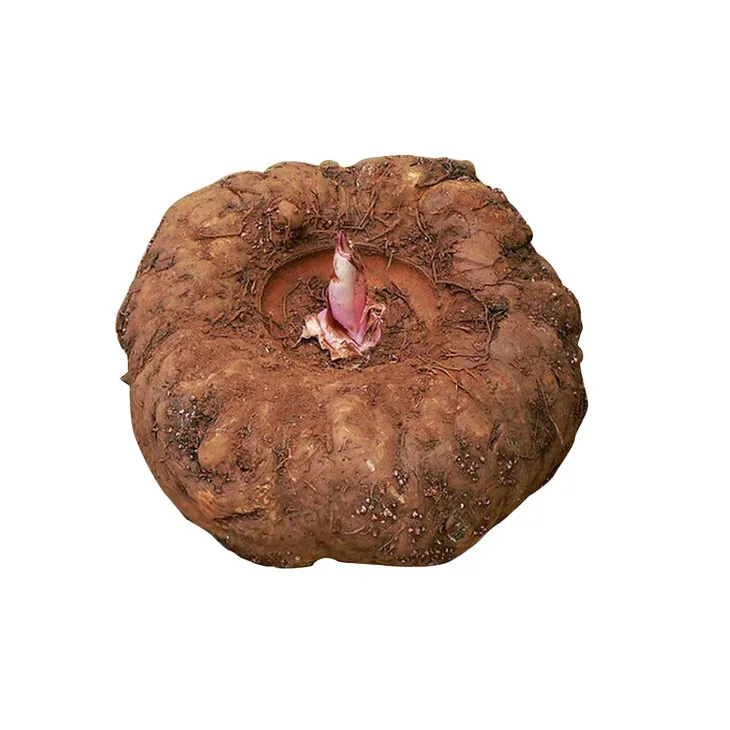
4. Precautions and Considerations
4.1 Digestive Discomfort
While konjac flour has many health benefits, it can also cause some digestive discomfort in some people, especially if consumed in large amounts. Since it expands in the digestive tract, overconsumption may lead to bloating, gas, or abdominal pain. It is recommended to start with a small amount and gradually increase the intake to allow your body to adjust.
4.2 Allergic Reactions
Although rare, some individuals may be allergic to konjac. Allergic symptoms can include skin rashes, itching, swelling, or difficulty breathing. If you experience any of these symptoms after consuming konjac - based products, discontinue use immediately and seek medical attention.
4.3 Medication Interactions
Konjac flour may interact with certain medications. For example, it can affect the absorption of some drugs because of its high fiber content. If you are taking any medications, especially those for diabetes or cholesterol control, it is advisable to consult your doctor before adding konjac flour to your diet. The doctor can determine if there are any potential interactions and adjust your medication dosage if necessary.
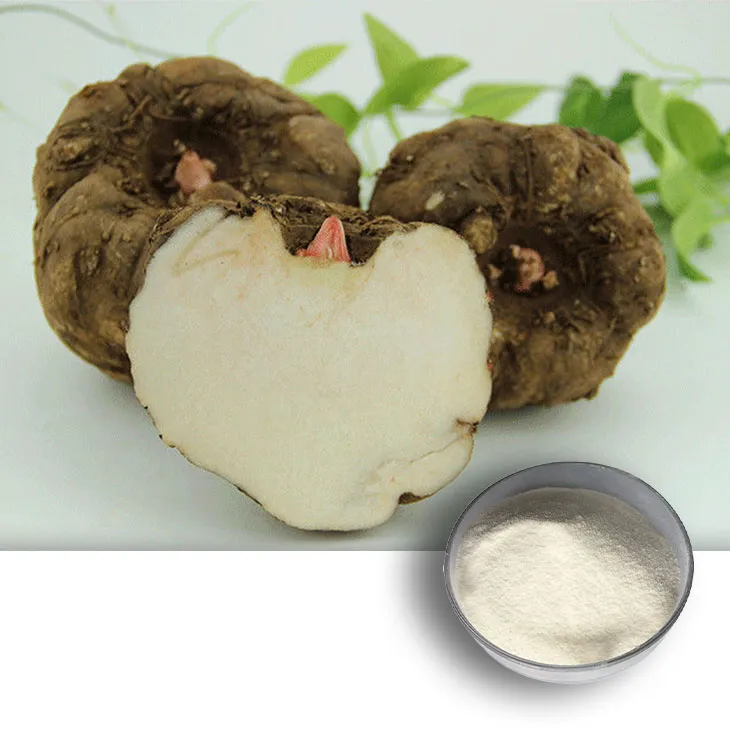
5. Conclusion
Konjac flour offers a wide range of health benefits, from aiding digestion to promoting satiety and potentially reducing the risk of various health problems. Incorporating it into your diet can be a great way to enhance your overall well - being. However, it is important to be aware of the precautions and considerations associated with its consumption. By following the proper intake methods and being mindful of any potential issues, you can safely enjoy the benefits of konjac flour in your daily life.
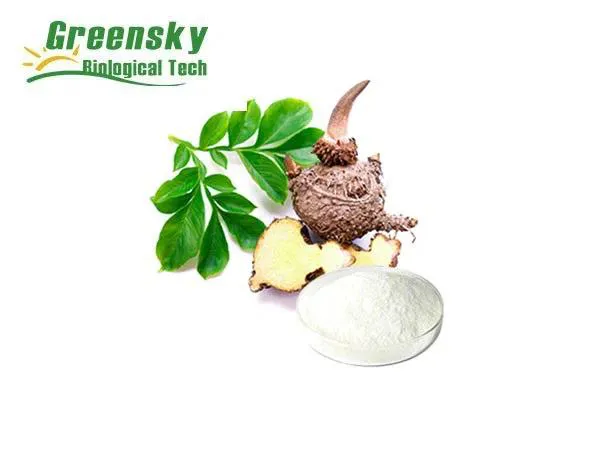
FAQ:
What are the main benefits of Konjac Powder?
Konjac Powder has several benefits. Firstly, it is rich in dietary fiber which can significantly aid digestion. It helps in preventing constipation by adding bulk to the stool and promoting regular bowel movements. Secondly, it is great for promoting satiety. Due to its high - fiber content, it can make you feel full for a longer time, which may be helpful for those who are trying to control their appetite and manage their weight. Additionally, some studies suggest that Konjac Powder may have a positive impact on blood sugar levels, potentially helping in the management of diabetes.
Is konjac powder suitable for everyone?
While konjac powder has many benefits, it may not be suitable for everyone. People with certain digestive disorders, such as intestinal obstruction or severe Crohn's disease, should avoid it as the high - fiber content may exacerbate their condition. Also, some individuals may be allergic to konjac, in which case they should not consume it. Pregnant and breastfeeding women should consult their healthcare providers before adding konjac powder to their diet, as there is limited research on its safety during these periods.
How can konjac powder be taken?
There are several ways to take konjac powder. One common method is to mix it with water or other liquids. You can stir a small amount of konjac powder into a glass of water until it forms a gel - like consistency. It can also be added to soups, stews, or smoothies. For example, when added to a soup, it thickens the soup while also providing its health benefits. Another way is to use konjac powder in baking, although it may require some experimentation as it can change the texture of the baked goods.
How much konjac powder should be consumed daily?
The amount of konjac powder that should be consumed daily depends on various factors such as individual health goals and tolerance. However, a general recommendation is to start with a small amount, around 1 - 2 grams per day, and gradually increase it if well - tolerated. Consuming too much konjac powder at once may cause digestive discomfort such as bloating or gas. It is always advisable to consult a healthcare professional or a nutritionist to determine the appropriate amount for your specific needs.
Does konjac powder have any side effects?
Konjac powder can have some side effects if not consumed properly. As mentioned before, consuming too much can lead to digestive problems like bloating, gas, and diarrhea. In some cases, if konjac powder is not fully hydrated before ingestion, it can expand in the digestive tract and cause blockages. Also, as it may affect blood sugar levels, diabetics should monitor their blood sugar closely when starting to consume konjac powder.
Related literature
- The Nutritional and Health - Promoting Properties of Konjac"
- "Konjac Flour in Dietary Management: A Review"
- "Beneficial Effects of Konjac on Digestion and Satiety"
- ▶ Hesperidin
- ▶ Citrus Bioflavonoids
- ▶ Plant Extract
- ▶ lycopene
- ▶ Diosmin
- ▶ Grape seed extract
- ▶ Sea buckthorn Juice Powder
- ▶ Fruit Juice Powder
- ▶ Hops Extract
- ▶ Artichoke Extract
- ▶ Mushroom extract
- ▶ Astaxanthin
- ▶ Green Tea Extract
- ▶ Curcumin
- ▶ Horse Chestnut Extract
- ▶ Other Product
- ▶ Boswellia Serrata Extract
- ▶ Resveratrol
- ▶ Marigold Extract
- ▶ Grape Leaf Extract
- ▶ New Product
- ▶ Aminolevulinic acid
- ▶ Cranberry Extract
- ▶ Red Yeast Rice
- ▶ Red Wine Extract
-
Lemon Juice Powder
2024-11-12
-
Rose Hip Extract
2024-11-12
-
Mango flavored powder
2024-11-12
-
Red Vine Extract
2024-11-12
-
Natural grape seed extract
2024-11-12
-
Pueraria Lobata Extract
2024-11-12
-
Red Date Extract
2024-11-12
-
Grape Seed Extract
2024-11-12
-
Marigold Extract
2024-11-12
-
Camu Camu Extract
2024-11-12





















